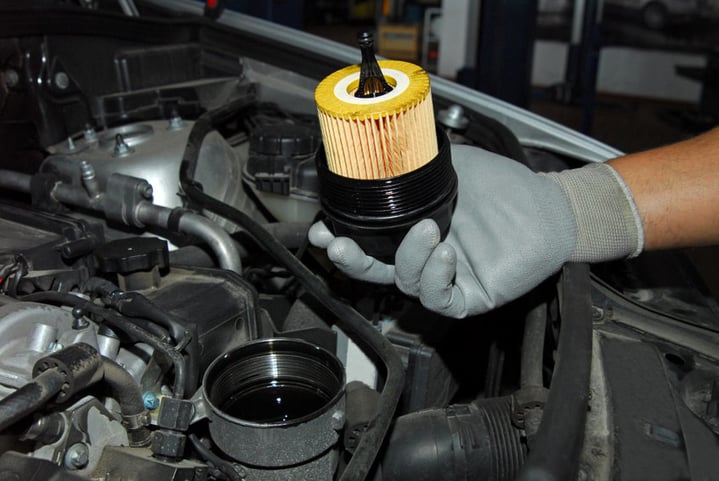Keep your engine healthy with an efficient Oil Change Lockhart.
Wiki Article
Optimize Your Automobile'S Performance With Routine Oil Changes
Preserving your automobile's efficiency is a complex undertaking, with regular oil changes standing out as a crucial aspect. Fresh engine oil plays a critical function in making sure ideal lubrication, minimizing rubbing, and stopping wear on crucial parts. Several vehicle drivers forget the indicators that show a demand for an oil adjustment, potentially jeopardizing their automobile's long life.Importance of Normal Oil Modifications
While numerous automobile proprietors might overlook the value of regular oil modifications, ignoring this important maintenance task can result in serious repercussions for engine performance and longevity. Engine oil plays a vital duty in lubing moving parts, lowering rubbing, and stopping overheating. Over time, oil wears away because of exposure to heat and impurities, which reduces its effectiveness.Failing to transform the oil frequently can result in the buildup of sludge and debris, which can block vital engine components and cause boosted wear. This not only endangers engine effectiveness but can additionally cause expensive fixings and even overall engine failing. Furthermore, old oil loses its capacity to neutralize acids generated during burning, which can result in deterioration and additional damages.
Additionally, several vehicle producers advise details oil change intervals, commonly based on gas mileage or time. In summary, regular oil modifications are not just a suggestion; they are an essential component of accountable car maintenance that shields the engine and enhances general efficiency.
Advantages of Fresh Oil
Transforming to fresh oil offers numerous benefits that directly improve engine performance and effectiveness. Among the main benefits of fresh oil is its premium lubricating properties. New oil reduces friction in between engine components, which not only reduces wear however additionally contributes to smoother operation. This results in improved fuel efficiency, as the engine does not have to work as hard to conquer resistance.In addition, fresh oil properly cleanses the engine by putting on hold impurities and stopping sludge accumulation. In time, oil becomes infected with dust, metal particles, and burning results. On a regular basis replacing oil guarantees that these dangerous compounds are removed, promoting a cleaner and much healthier engine environment.
Moreover, fresh oil help in ideal temperature law. It dissipates warm better, protecting against overheating and potential damages to engine elements. This is especially important throughout peak performance scenarios, where warm buildup can hinder engine functionality.
Indications Your Oil Demands Altering
Engine oil is the lifeline of your vehicle, and acknowledging when it needs transforming is critical for maintaining optimal performance - Oil Change Lockhart. A number of indicators indicate that it's time for an oil modification, and remaining vigilant can avoid engine damage and expensive repairsFirst, inspect the shade and consistency of the oil. Fresh oil is normally amber and smooth, while old oil may show up dark and abrasive, showing contamination and decreased efficiency. An adjustment in viscosity can likewise indicate that the oil has actually broken down and is no longer appropriately oiling engine components.

One more caution indication is the oil adjustment light on your control panel. This sharp acts as a pointer that the oil has actually reached its life-span or that there is a hidden issue needing attention. In addition, unusual engine sounds, such as knocking or ticking, may suggest not enough lubrication due to abject oil.
Finally, if you notice oil spots or puddles under your car, it might show a leakage that demands prompt inspection and possible oil change. Listening to these indicators will ensure your engine runs smoothly and successfully.
Selecting the Right Oil
Selecting the proper oil for your automobile is crucial for making certain optimum efficiency and long life. Engine oils can be found in numerous kinds and viscosities, each created to fulfill specific demands. The first factor to consider must be the producer's recommendations, which can generally be found in the proprietor's guidebook. This advice will certainly guide you toward the right thickness grade, such as 5W-30 or 10W-40, which shows the oil's thickness at various temperature levels.Next, take into consideration the type of oil: traditional, artificial, or a mix. Traditional oil is stemmed from petroleum and is ideal for older vehicles, while synthetic oil uses remarkable protection and performance for contemporary linked here engines, specifically under extreme conditions. Synthetic blends integrate the advantages of both and are commonly an affordable option.
Furthermore, search for oils that fulfill market criteria, such as API (American Petroleum Institute) or ACEA (Organization des Constructeurs Européens d'Automobiles) accreditations. These check signs make sure that the oil has been examined for high quality and efficiency. Inevitably, selecting the appropriate oil not only boosts engine effectiveness yet also adds to the overall health and wellness of your vehicle, leading the way for smoother driving experiences.
Oil Adjustment Regularity Recommendations

Factors affecting oil change frequency include driving conditions, such as stop-and-go web traffic, extreme temperature levels, and pulling heavy tons. Under serious problems, it could be prudent to transform the oil much more regularly to avoid engine wear. Additionally, some modern-day vehicles come outfitted with oil life tracking systems that give individualized recommendations based on driving habits, which can additionally optimize the oil modification timetable.
It's important to consult your proprietor's handbook for particular referrals tailored to your automobile. Sticking to these guidelines not only preserves engine health and wellness yet also improves gas efficiency and minimizes exhausts. To conclude, normal oil changes, timed properly based upon numerous elements, are an essential facet of vehicle maintenance that can dramatically impact efficiency and durability.
Conclusion

Report this wiki page